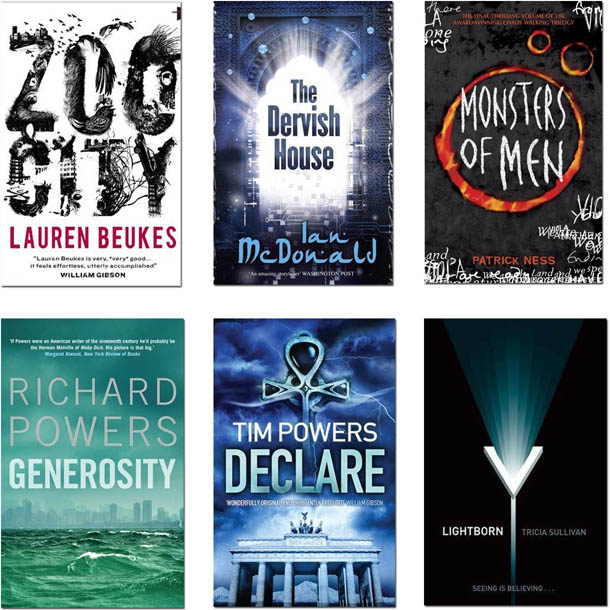Who’s the biggest blockbuster? The Arthur C Clarke Award goes head-to-head with the God Of Thunder, writes Tom Hunter, the man behind the award

We’re only a few short hours away now from one of the most hotly-anticipated dates in the SF calendar and the answer to the one big question everyone’s been waiting for:
Is Thor any good?
Okay, so I’m being slightly flippant, but actually as the person responsible for the other big science fiction reveal happening on Wednesday 27 April – the announcement of this year’s best science fiction novel and winner of the Arthur C Clarke Award – I’m obviously paying a lot of attention to anyone else sharing my event space.
Naturally I knew I’d be busy on this particular date quite a while ago, so I took the sneaky liberty of snagging preview tickets and am happy to report that Thor is easily the best film starring a Superhero Viking God with a Massive Hammer that I’ve seen all year.
Get sneak previews, exclusive competitions and details of special events each month!
I’m even happier to report that Natalie Portman’s peppy astrophysicist character directly references Sir Arthur Clarke’s famous line “any sufficiently advanced technology is indistinguishable from magic” with direct credit given to the great man himself.
Talk about your favourite fanboy moments there.
I’m a big fan of these moments of connectedness in SF&F. That sense of a shared genre interest that keeps bringing us fans together even while the edges of that genre continue to push into turbulent new territories and the ever bubbling laboratory of subcategories.
In fact I’m more than just a fan of those moments, I actively look out for them. You see, while I am director of the Clarke Award, the most important decisions about the award aren’t made by me but rather by our panel of independently nominated judges. This is definitely a good thing by the way, and while they debate the merits of individual books, I’m left free to simply sit back and listen to what is occupying the attention of the wider world of genre fans.
Okay, so sometimes they’re talking about Thor , not me, but there’s no denying that the amount of coverage, conversation and speculation surrounding the Clarke Award is growing every year, and from my position in the centre of the social media storm I can say that this year’s shortlist has proved to be one of the most popular but hotly debated of recent years.
We have six great books on this year’s list, there’s no doubt about that, but what impresses me most about this particular selection is its depth and complexity. With over 50 eligible books submitted this year, narrowing the selection down to just six requires a formidable amount of knowledge, chutzpah and, dare I say, balls to get the job done.
This year the final selection of books couldn’t have been more varied, although that hasn’t stopped people trying to find points of comparison and possible clues that might have informed the judging process.
Personally, I’m more interested in what such a strong and varied list says about the health of our favourite genre, and based on this list I think there’s a lot to be positive about. What strikes me most about this particular list is how much better it seems as whole every time I come back to it. You might perhaps question why one particular book was selected where another was passed over, especially if that other one was a personal favourite (this happens to me too by the way) but taken as a whole this feels like a richly satisfying shortlist full of teasing complexity, determination and indeed contradiction – all of which are good things.
I’m very happy with this list because of the way it connects me with so many different elements of contemporary science fiction writing. It’s only right, of course, that the decision around the winning novel will be fiercely debated, both by our panel of judges and out across the wilder reaches of the internet, but while our prize is awarded to the best science fiction novel of the year, I like to think that the Arthur C Clarke Award itself stands for all that is best in science fiction, and if that’s what you’re looking for then for me this year’s shortlist has already been a hit of blockbuster proportions.
SFX Magazine is the world's number one sci-fi, fantasy, and horror magazine published by Future PLC. Established in 1995, SFX Magazine prides itself on writing for its fans, welcoming geeks, collectors, and aficionados into its readership for over 25 years. Covering films, TV shows, books, comics, games, merch, and more, SFX Magazine is published every month. If you love it, chances are we do too and you'll find it in SFX.


